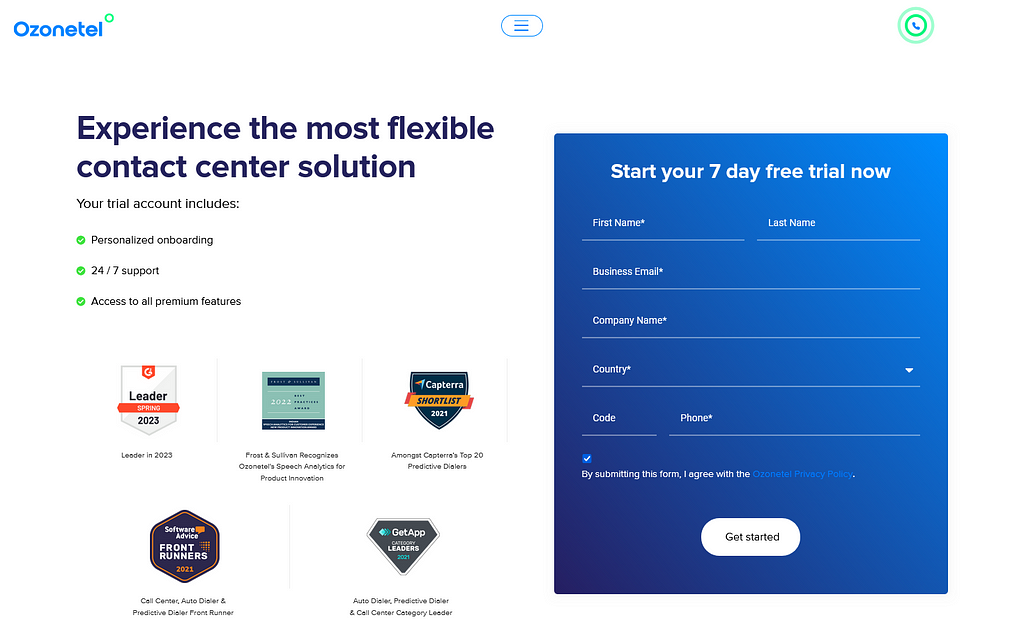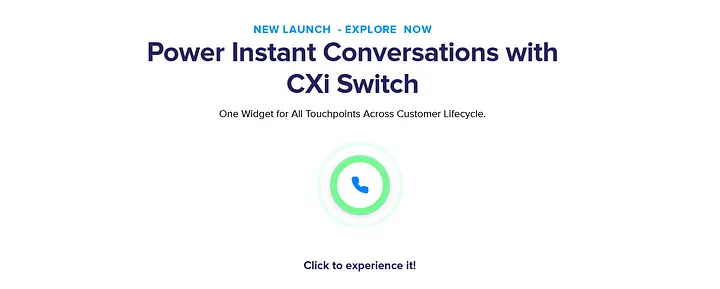- Resources
- 8 Tips to Select a Small Business Phone System for Efficient Sales
8 Tips to Select a Small Business Phone System for Efficient Sales

Today, technology can improve every aspect of the sales cycle. From basic calling to more complex elements of lead generation, prospecting, tracking and CRM.
However, sales agents still end up spending a chunk of their time manually working through tasks that could have been automated. This makes the entire sales process frustrating, laborious and inefficient. For example, it is not uncommon for agents to waste productive time:
What a challenge it is to find a solution that meets these pain points and more! So, what should a small business look for, in a phone system for efficient sales cycle management? Here are 8 tips that could help:
- Trying to get through to qualified customers
- Calling customers whose numbers are on the DND list
- Manually inputting call details
- Finding and consolidating customer information, and then, not being able to find them at a glance when chatting with a potential lead
- Juggling between multiple pieces of software
- Calling customers days after they’ve expressed interest through web forms, for instance
- Manually mapping callers to tickets
In this article, we will explore:
8 Tips to Select a Small Business Phone System for Efficient Sales
Tip 1: Look for automated dialing.
It takes 18 or more phone dials to connect with a prospect, and call-back rates are below 1%. On average, agents spend a measly 10-20% or so of their time being productive, where they manage to get a hold of qualified customers. The remainder of the time is spent on inefficient, wasteful tasks like manual dialing, mis-dialing, dropped calls, sifting through lists, and listening to busy tones. Look for a small business phone system that can automate dialing. Double productivity through increased operational efficiency, increased talk time for agents, and increased sales with better prospecting and lead conversion.
Tip 2: Look for Compliance
For efficient sales, it is critical to have a DND compliant database. Once their number is DND registered, customers can register a complaint for receiving unsolicited commercial text messages or phone calls. Look for a phone system that can scrub your database to ensure your list is DND compliant.
Tip 3: Ensure CRM integration.
Your small business may be using CRM solutions like Zoho, Zendesk, Freshdesk or even Salesforce. Make sure your phone system gives a seamless integration. This arms your sales agents with the right tools to be efficient. CRM integration ensures efficient sales processes now, and as your business grows and scales in the future. For starters, a lot of manual labor is automated, and sales agents can easily access information at a glance. For example, look for features that can:
Auto-log calls so that sales agents don’t waste time manually doing it.
Auto-call customers when they fill out a webform. Agents get real-time alerts when customers express interest and is armed with all the relevant info. Agents simply click to call interested customers.
Easily access relevant data on leads as agents talk to /chat with them. Agents don’t need to toggle between different software or windows, thereby making their operations more streamlined and productive.
Use IVR to send reminders for last dates, renewals, payments, greetings, announcements and other updates.
Map calls to tickets and connect customers to the last agent they spoke to.
Integrate with other leading small business CRM platforms like Zoho, Salesforce or Zendesk to create automated and efficient workflows (communication tracking, prompt issue resolution, identifying high-volume interaction times, etc.)
Tip 4: Look for Multi-channel integration.
You need to reach customers across channels – social media, email, text messages. You need a phone system that can work across these multi-media channels with capabilities such as SMS plug-ins, Facebook & Messenger integration, for easy real time, seamless personal customer communication.
Tip 5: Ensure cost efficiency.
The two things that are likely at a premium for a small business are time and resources. Especially, as business scales, the challenge is keeping the machine lean. As a small business, you need a tech solution that has minimal set up costs. Consider a cloud telephony solution. Thanks to software as a service (SaaS) options that are deployed in the cloud, all you need are headphones and an internet connection, making infrastructural costs almost negligible.
Tip 6: Look for ease of use.
Technology is there to help, and not to make your already busy, over-stretched life more difficult. Look for a phone system that is easy to set up and has a high usability quotient. Complicated technology frustrates and backfires. For example, look for a phone system that doesn’t require toggling between screens. A user-friendly dashboard-type feature is a useful streamlining tool, for both customers and sales agents.
Tip 7: Ensure employee productivity.
Employee productivity is two-fold. One, is from a staffing and hiring point of view, and the other is purely from an efficient sales management perspective.
As an employer, optimize for lull periods and busy ones. As a small business you will no doubt like to watch your resources and ensure optimal employee productivity. Look for a system that helps you make efficient staffing decisions. Select a phone system that has in-built functionalities to track agent productivity, productivity reports (e.g. efficiency reposts, waiting times, etc.). By assessing call volumes, for instance, you can tweak your hiring and staffing needs (e.g. deploy additional staff during peak times only).
Look for capabilities that help maximize your agents’ productivity. For example, as mentioned in this article, some phone services offer IVR, Automatic Call Distribution and Auto dialers that are highly time saving.
Tip 8: Look for scalability.
Look for a phone system with a variety of features that are likely to meet your company’s future growth needs. Investing in technology is expensive from a human capital perspective as well. Changing technology as you grow can be counterproductive simply because employees spend time adapting and learning. For this reason, it is important to select a system that makes it easy to add new users or integrate with new apps at an affordable/ minimally incremental cost; allows you to add/ expand capabilities at a price that won’t break the bank, while keeping it all familiar!
Bottomline: As you get out there and research for the best phone system for your sales needs, do yourself a favor. Optimize for the maximum bang for your buck by selecting a system that is low cost, scalable and laborsaving with a wide range of auto capabilities.
Ready to take control of your call transfer
experience for better CX outcomes?
Related resources
Lorem ipsum dolor sit amet, consectetur adipiscing elit. Ut elit tellus, luctus nec ullamcorper mattis, pulvinar dapibus leo.







